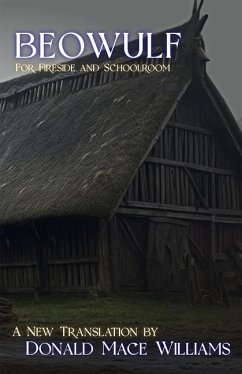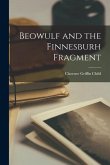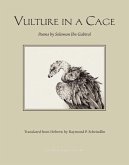This new translation of the oldest narrative poem in English has three qualities that set it apart from the many previous translations. First, it has cut the scholarly touches to a minimum, using only eight end notes to clarify certain passages. Notes in the margin often amount to a single word to explain some word or phrase. The introduction, too, is designed for easy, pleasant reading. The second quality that makes this translation distinctive is that it is written in iambic meter, familiar to readers of more than six centuries of poetry in modern English. The translation uses almost always four stresses per line, the same as in the Anglo-Saxon, though the alliterative formula of the ancient text is not a part of Williams's scheme. The third distinctive feature of the translation is that it keeps the kennings that are such an important characteristic of the original. When the Beowulf poet (or poets) calls the sea the "whale paths," Williams does the same. To translate the phrase as the "sea," to Williams's mind, would take away much of the Anglo-Saxon charm and would deprive the reader of an image. Donald Mace Williams has approached his translation as both a published writer of modern metrical poems and a scholar in the verse structure of Beowulf. His Ph.D. in that subject was done at the University of Texas under the direction of the noted prosodist and philologist Thomas M. Cable.
Hinweis: Dieser Artikel kann nur an eine deutsche Lieferadresse ausgeliefert werden.
Hinweis: Dieser Artikel kann nur an eine deutsche Lieferadresse ausgeliefert werden.








